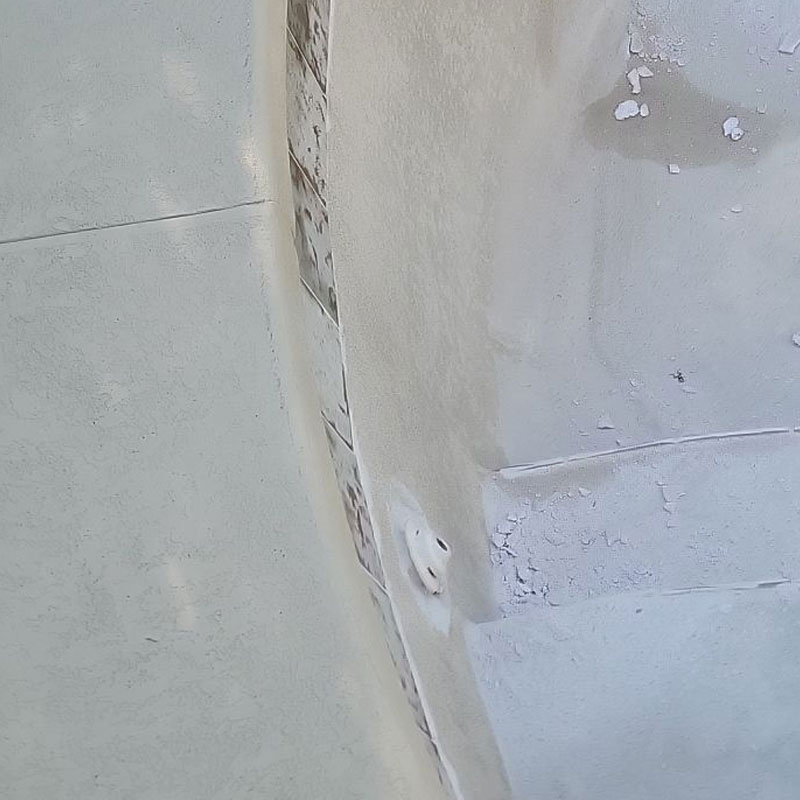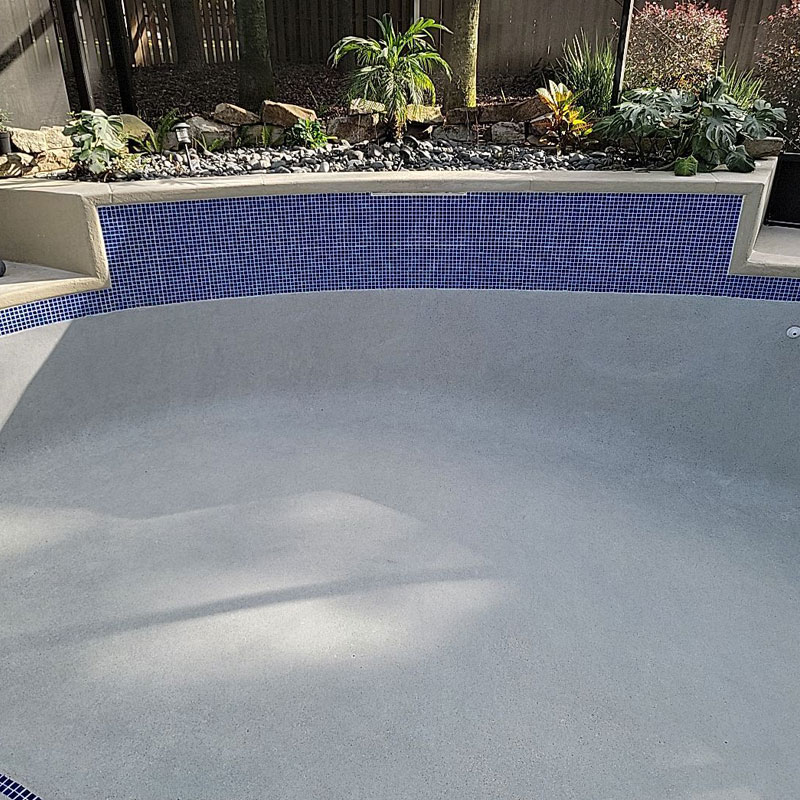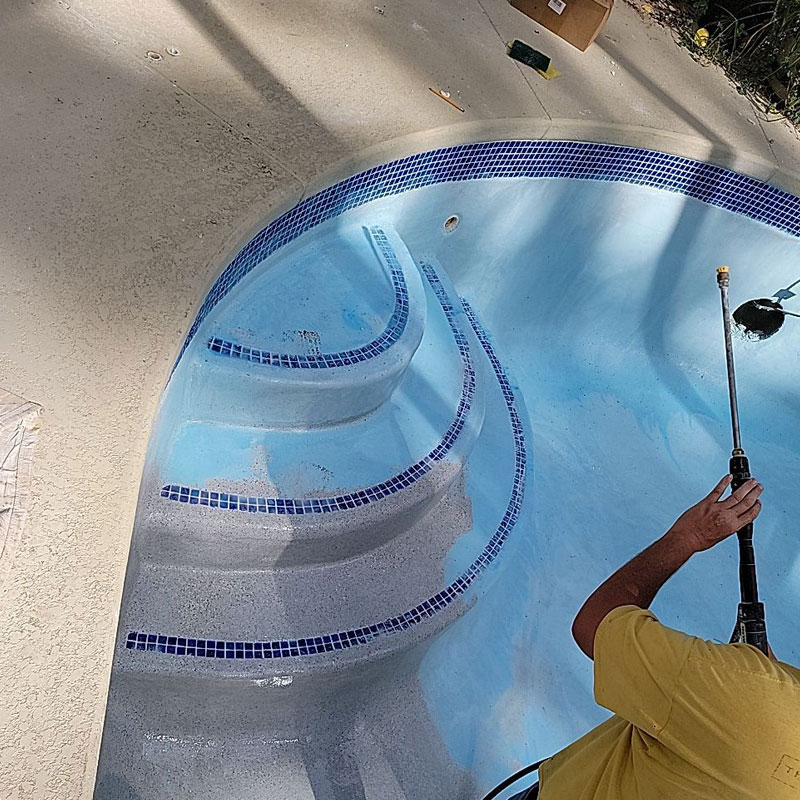We are Lake City’s primary go to solution in plastering concrete pools.
Plastering a concrete pool is a crucial step in its construction or renovation process. Proper preparation ensures the longevity and quality of the plaster finish.
Our plastering company comprises seasoned professionals with years of experience in concrete pool plastering. We go beyond the basics, offering a wealth of expertise in various techniques in pool resurfacing and plaster finishes. Whether it’s a residential space or a commercial project, our skilled craftsmen bring a level of precision and finesse that transforms ordinary surfaces into works of art.
We understand the importance of timelines in swimming pool projects. Our streamlined processes and efficient project management ensure that deadlines are met without compromising on the quality of work. We value our customers’ time and strive to complete each project promptly, allowing them to enjoy their newly plastered pool sooner.
At Lake City Remodelers we provide each and every customer with the highest level of customer service. In the realm of construction and design, selecting the right service provider is paramount. With every one of our projects including concrete pool plastering, we ensure unparalleled experience for our valued customers.
Our commitment to expertise, tailored solutions, quality materials, efficient project execution, and transparent communication sets us apart in the industry. When you choose us for your concrete pool plastering needs, you’re not just selecting a service provider; you’re investing in a partnership that ensures your vision comes to life with unmatched quality and craftsmanship.


Check Structural Integrity: We ensure that the concrete structure of the pool is sound and free from any major cracks or defects. This allows us to address any structural issues before proceeding with plastering.
Prepare the Surface: The pool surface needs to be clean and free from dirt, debris, and any loose material. Pressure washing can be an effective method to clean the surface thoroughly.
Repair Cracks and Imperfections: We inspect the pool surface for any cracks or imperfections. We then repair any cracks using an appropriate epoxy filler or patching material. We then ensure that the repaired areas are smooth and even.
Adjust pH Levels: Test and adjust the pH levels of the pool water. The ideal pH range is typically between 7.2 and 7.8. Proper pH levels ensure that the plaster adheres well to the surface.
Prevent Algae and Mold: If there’s any presence of algae or mold, you should treat the pool with an appropriate algaecide or antimicrobial solution. This helps prevent the growth of these microorganisms under the plaster.
Wet the Surface: Wet the pool surface before applying plaster. This prevents the dry concrete from absorbing water from the plaster too quickly, which can lead to a weak bond.
Apply a Bonding Agent: Consider applying a bonding agent to enhance the adhesion between the existing concrete surface and the plaster. Follow the manufacturer’s instructions for application.
Mix Plaster Properly: Follow the manufacturer’s guidelines for mixing the plaster. Ensure that the plaster mix is consistent and free from lumps. Use the appropriate ratio of water to plaster.
Work in Sections: Work in small sections to ensure that the plaster is applied evenly. This helps in achieving a uniform finish and allows for better control of the application process
Curing Time: Allow the plaster to cure according to the manufacturer’s recommendations. This typically involves keeping the pool filled with water to aid in the curing process.
Start Pool Filling: Once the plaster has cured, start filling the pool with water. Follow any specific guidelines provided by the plaster manufacturer regarding the filling process.
Regular Maintenance: Establish a routine maintenance schedule for the pool to ensure the longevity of the plaster finish. This includes regular cleaning, proper water chemistry, and addressing any issues promptly.
The frequency at which you need to replaster a concrete pool depends on several factors, including the quality of the original plaster job, the water chemistry and maintenance, and the overall usage of the pool. On average, concrete pools may need to be replastered every 10 to 15 years. However, some pools may require more frequent replastering, while others can go longer without needing it.
Here are some factors that can affect the lifespan of pool plaster:
Water Chemistry: Maintaining proper water chemistry is crucial for the longevity of pool plaster. Imbalances in pH, alkalinity, or calcium hardness can accelerate the breakdown of the plaster surface.
Usage: Pools that experience heavy use, such as those in commercial settings or with a large number of swimmers, may need to be replastered more frequently than residential pools with lighter usage.
Climate: Extreme weather conditions, such as freeze-thaw cycles in colder climates or prolonged exposure to intense sunlight, can impact the lifespan of pool plaster.
Maintenance: Regular maintenance, including proper cleaning, brushing, and chemical balance, can help extend the life of the plaster.
Quality of Initial Plaster Job: The skill and quality of the original plastering job can influence how long the plaster will last. A well-executed plaster job may have a longer lifespan.
Ultimately, working with a pool maintenance professional and following their recommendations based on your specific pool’s conditions will help you determine the best timing for replastering.
